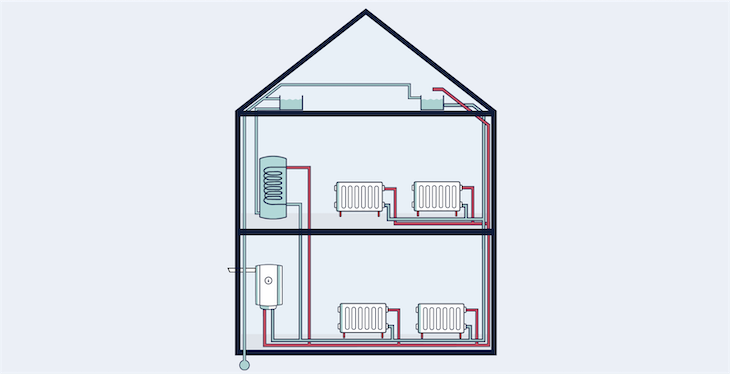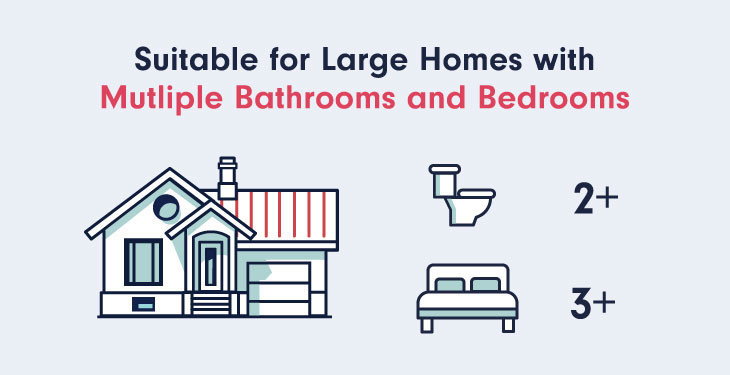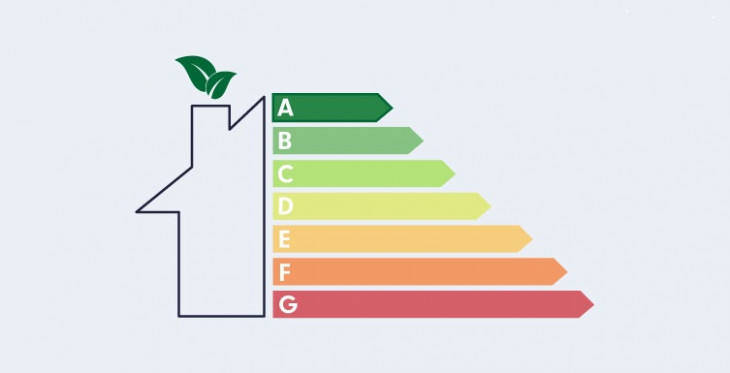

Written by Stephen Day
Gas Safe Engineer
Updated: 30th May, 2025
In this guide, we are going to talk about what an open vent heating system is, how it works, what kind of homes it is best for, and how to find the best boiler for your home.
An open vent boiler is also referred to as a conventional heating system or a heat only boiler in the industry.
These kinds of systems can provide heating and hot water, but they require two cylinders and an open vent heating system to do so, which is why they are only suitable for certain properties.
Get a free fixed price quote for a new boiler installed fast! - Find the perfect boiler!
Get a quote in 60 seconds, fitted as fast as next day!
0% APR finance available.
An open vent heating system is made up of two tanks: a water cylinder storage tank, a separate pump, and the open vent boiler. These are not compact units like the best combi boilers.

Due to the space an open vent boiler requires, you will commonly find an open vent boiler system in the attic of a property, and they are usually found in older buildings.
Open vent heating systems are ideal for large homes with multiple bathrooms because they can provide a lot of heat at once through the hot water cylinder in the system, allowing you to control multiple bathrooms at the same time.

They also allow you to control the central heating in multiple rooms of the house.
If you are familiar with heat only boilers, then you will be aware of the fact that this kind of boiler does not provide heat constantly, as the water tanks need to be full to provide it on demand.
However, it is because of the storage cylinders that these systems can provide water in multiple spaces of the home without impacting the temperature, water pressure, or energy bills when they are full.
Open vent boilers can provide a lot of water when the feed tank is full, which is why they are ideal for homes with multiple bathrooms where heat is in high demand.
If you need something that can handle the pressure of your large family and your demands for heat, then an open vented boiler may be the best choice.
An open vented heating system is a traditional one and something that is most commonly found in older properties.
The tanks are located in the loft due to the space they require and will provide hot water and heating to the entire home.
To help you determine whether these boilers are the right choice for you, we are going to look into how they work.
Open vent boilers have a cold water tank that is connected to the mains supply of your property, and this is where the water supply comes from in your heating system.
The cold water storage tank draws water from the mains and feeds this into the hot water cylinder.
In this hot water cylinder, the feed and expansion tank, the water is heated to provide water on demand across the home.
Like any other sealed system, the demand for hot water depends on how much water is in the tank.
As it is a sealed system, which means it gets water from within the boiler itself, customers must wait until the tank has been filled once more before they can get additional hot water after the supply has been used up.
An open vented boiler also has a water storage cylinder that works to keep the water level of the central heating system constant to ensure a regular supply. This is the second storage cylinder that is required for the complete system.
This second tank can be installed in the loft alongside the rest of the system, but it can also be put in an airing cupboard or another cupboard in the home.
This large amount of space that is required means that the best place for these systems to be is in the loft.
Other sealed systems also required large spaces like this, which is why you will most likely find a sealed system in older properties as newer homes require something more compact.
Some homes with open vent boilers have water tanks in the loft and the storage cylinder in the airing cupboard. A gas safe registered installer can offer this service if you have a cupboard that is big enough for the storage tank.
Get a quote in 60 seconds, fitted as fast as next day!
0% APR finance available.
With these multiple tanks, these boilers can provide hot water to multiple rooms or out of multiple outlets, such as a tap and shower, at once.
Unlike combi or condensing boilers, these vent systems can do this without reducing the temperature or water pressure which is why they are highly rated for energy efficiency.
Not only is an open vented boiler efficient at providing heating to a home, but they are also energy-efficient, which can help you save money on your energy bills.
Energy efficiency is an important factor to consider when it comes to boilers, and most of the boilers we have available in our range online have an A ERP rating, which means they are energy efficient.

Open vent boilers can be a great choice for homes with multiple bathrooms due to the high demand for hot water they can provide.
If you live in a home with multiple bathrooms and a large family, an open vent boiler can be a much better option than a gas system due to the water demand it can provide.
This applies to the gas boilers, sealed systems, and condensing boilers we have available.
A boiler needs to be replaced every 10 to 15 years, so it may be time for you to consider getting a new boiler.
However, there is a wide range of heating systems available, which can make it difficult for you to find the best option for your home.
At iHeat, we offer a wide range of open vented boilers.
To find out which is best for your home, simply answer a few questions about your existing home and boiler system and we’ll recommend the best boilers for you along with a fixed price.

All of our boilers come with a 10-year warranty as standard and will be installed by a registered gas safe engineer.
We can deliver a boiler to your home the next day.
Last updated: 30th May, 2025

Written by Stephen Day
Gas Safe Engineer at iHeat
Stephen Day is a Gas Safe registered and FGAS certified engineer with over 20 years of hands-on experience in the heating, cooling, and renewable energy industry, specialising in boiler installations, air conditioning, and heat pump systems.
LinkedInArticles by Stephen Day are reviewed by iHeat’s technical team to ensure accuracy and reliability.

19th February, 2026
Selecting the appropriate boiler for your London home involves understanding the different...
 Read Article
Read Article

19th February, 2026
A typical Annual Boiler Service includes a visual inspection to identify any obvious fault...
 Read Article
Read Article

19th February, 2026
Boiler servicing comprises a set of inspections and tests conducted by a qualified enginee...
 Read Article
Read Article
No obligation. Takes less than 60 seconds.